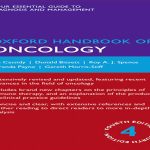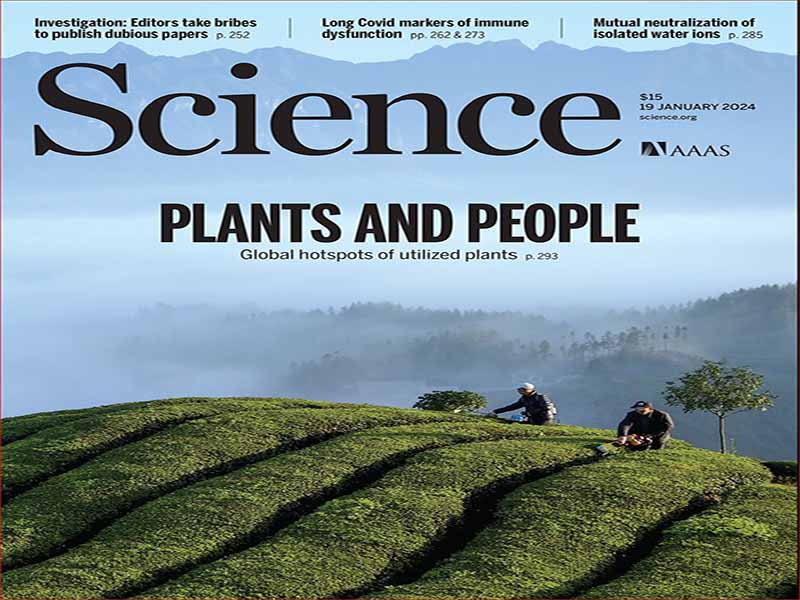- عنوان کتاب: Science Plants and people
- نویسنده: science.org
- سال انتشار: 2024
- حوزه: گل و گیاه
- تعداد صفحه: 123
- زبان اصلی: انگلیسی
- نوع فایل: pdf
- حجم فایل: 38.9 مگابایت
جامعه در مواجهه با چالشهای عمیق محیطی که به سرعت در حال تغییر است، به روشهای دیگری برای شناختن برای روشن کردن مسیری متفاوت نیاز دارد. به لطف رهبری دانشمندان بومی و همکاران متحد، دانش بومی به دلیل پتانسیل خود برای ارائه راهحلهایی برای شکوفایی متقابل سرزمینها و فرهنگها شناخته شده است. یک سوال فوری این است که چگونه موسسات می توانند به طور مناسب از نقش کلیدی علوم بومی در ایجاد آینده ای پایدار حمایت کنند (و نه مانع شوند). پس از سالها به حاشیه راندن علم غربی، توجه به دانش بومی به جایگاههای بالایی رسیده است. برای مثال، در سال 2022، کاخ سفید خواستار ارتقای چنین دانشی در تحقیقات، سیاستگذاری و مدیریت زمین شد. با توجه به سابقه ایالات متحده در تلاش برای پاک کردن افکار بومی از طریق سیاست های حذف و جذب اجباری، این فوق العاده است. زمینه تحقیقات جهانی به رهبری بومیان در مورد نظارت بر زمین ها و آب ها وجود دارد که فرصت هایی را برای شکوفایی دانش بومی و غربی با هم فراهم می کند. در سپتامبر گذشته، بنیاد ملی علوم ایالات متحده، با تأسیس «مرکز بریدینگ دانش و علوم بومی» (CBIKS) یک گام بزرگ در این مسیر اعلام کرد. CBIKS به رهبری تیمی متشکل از 54 محقق عمدتاً بومی و مقر آن در دانشگاه ماساچوست، آمهرست، بر روی موضوعات پیچیده در پیوند طبیعت و فرهنگ تمرکز دارد. تیم های تحقیقاتی که در سراسر جهان فعالیت می کنند، از طریق یادگیری از رویکردهای مبتنی بر جامعه بومی، به اختلالات آب و هوایی، ناامنی غذایی و بقای فرهنگی خواهند پرداخت. هدف، شناسایی و پیشبرد الگوهای تلفیق اخلاقی و مؤثر علوم بومی و غربی با ایجاد روابط متقابل محترمانه و متقابل بین آنهاست. CBIKS رویکردهای قابل تعمیم را برای جوامع مختلف علمی توسعه خواهد داد. CBIKS نمونه بارز مدلی است که از تحقیقاتی پشتیبانی می کند که بر اساس جهان بینی و اولویت های مردم بومی در سراسر جهان هدایت می شوند. ابتکارات مشابه در استرالیا، کانادا، Aotearoa/نیوزیلند، و جاهای دیگر نیز پیشرو هستند. برای مدت طولانی، مردم بومی برای داشتن صدایی در تصمیم گیری های مربوط به سرزمین، آب و زندگی خود می جنگند. تلاشهای پژوهشی به رهبری بومیها به مسیرهای مختلف رو به جلو اشاره میکند – مسیرهایی که در آن مردم بومی نه تنها بر سر میز علم غرب مینشینند، بلکه برنامههای تحقیقاتی را تنظیم میکنند که اولویتها و پروتکلهای آنها را منعکس میکند. ضمن تجلیل از این تحولات، نباید مسئولیت نهادها را نادیده گرفت. بسیار مهم است که شور و شوق جدید به شکل «معدن دانش» شکل نگیرد، شبیه به شرکتی که ناگهان ارزش یک ماده معدنی را که قبلاً نادیده گرفته شده است، تشخیص می دهد، برای استخراج سنگ معدن به نفع خود عجله می کند و باطله های سمی را پشت سر می گذارد. حمایت و مشارکت دانش بومی در درجه اول شامل حمایت از جوامع بومی است. تلاش بازیگران خارجی برای «ادغام» دانش بومی در کار خود بدون رضایت کامل جوامع بومی، بسیار استخراج کننده است و حاکمیت این جوامع بر دانش خود را تضعیف می کند. همکارانی که قصد حمایت از سیستمهای دانش بومی را دارند، ممکن است به جای آن گوش دهند، یاد بگیرند، و در صورت درخواست، دانش یا منابع تحقیقاتی خود را به جوامع کمک کنند. آنها ممکن است از حاکمیت حکومت محلی، بازگرداندن زمین های مصادره شده و بازگرداندن بقایای اجدادی و گنجینه های فرهنگی نگهداری شده در موزه ها، دانشگاه ها یا مجموعه های خصوصی حمایت کنند. حمایت از تحقیقات تحت رهبری بومیها همچنین مستلزم پرداختن به موانع نهادی مستند است که مشارکت کامل و دیده شدن جهانبینیهای بومی را محدود میکند. برخی از پروتکلهای تعبیهشده ممکن است با اخلاق، ارزشها و فرآیندهای بومی در تضاد باشند. به عنوان مثال، تحقیقات بومی توسط محیطهایی پشتیبانی میشود که معیارهای موفقیت نه تنها شامل تعداد مقالات علمی منتشر شده میشود، بلکه بهبود رفاه زمین و فرهنگ را نیز به رسمیت میشناسد. کشورها باید سیاست هایی را پیش ببرند که به جای تجاوز به خرد، حاکمیت و حقوق مردمان بومی، حمایت کنند. برای تحقق پتانسیل تحول آفرین این رویکرد، باید فضایی ایجاد شود که به کثرت گرایی و در عین حال حفاظت از حاکمیت دانش های متنوع، ارزش قائل شود. به این ترتیب می توان از همزیستی دانش غربی و بومی راه حل هایی پدید آمد که به نفع همه باشد. برای قرنها، دانشمندان بومی مجبور بودهاند خود را با شیوههای دانشسازی غربی وفق دهند و در آن تسلط داشته باشند. اکنون نوبت دانشمندان غربی است که از علم بومی بیاموزند و به آن احترام بگذارند.
Faced with the profound challenges of a rapidly changing environment, society needs other ways of knowing to illuminate a different way forward. Thanks to the leadership of Indigenous scholars and allied collaborators, Indigenous knowledge is receiving long overdue recognition for its potential to provide solutions for the mutual thriving of lands and cultures. An urgent question is how institutions can appropriately support (and not hinder) Indigenous science’s key role in creating a sustainable future. After years of marginalization by Western science, regard for Indigenous knowledge is reaching high places. For example, in 2022, the White House called for elevating such knowledge in research, policy, and land management. This is extraordinary given the United States’ track record of attempted erasure of Indigenous thought through policies of removal and forced assimilation. There is a global groundswell of Indigenous-led research on stewardship of lands and waters, providing opportunities for Indigenous and Western knowledges to flourish together. A major step in this direction was announced last September by the US National Science Foundation, in its establishment of the Center for Braiding Indigenous Knowledges and Science (CBIKS). Led by a team of 54 predominantly Indigenous scholars and headquartered at the University of Massachusetts, Amherst, CBIKS aims to focus on complex issues at the nexus of nature and culture. The research teams, which span the globe, will address climate disruption, food insecurity, and cultural survival through learning from Indigenous community-based approaches. The goal is to identify and advance models of ethical and effective integration of Indigenous and Western sciences by creating mutually respectful and reciprocal relationships between them. CBIKS will develop generalizable approaches for a diversity of scientific communities. CBIKS is a prime example of a model that supports research guided by the worldview and priorities of Indigenous peoples around the world. Similar initiatives in Australia, Canada, Aotearoa/New Zealand, and elsewhere are also leading the way. For too long, Indigenous peoples have been fighting for a voice in decisions regarding their lands, waters, and lives. Indigenous-led research efforts will point to different paths forward— those in which Indigenous peoples do not merely have a seat at Western science’s table but are setting research agendas that reflect their priorities and protocols. While celebrating these developments, the responsibility of institutions should not be overlooked. It is crucial that new enthusiasm not take the form of “knowledge mining,” akin to a company suddenly recognizing the value of a previously overlooked mineral, rushing in to extract the ore for its own benefit, and leaving behind toxic tailings. Supporting and engaging Indigenous knowledge first and foremost involves supporting Indigenous communities. Attempts of outside actors to “incorporate” Indigenous knowledge into their own work without full consent of Indigenous communities is highly extractive and undermines the sovereignty of these communities over their own knowledge. Collaborators intent on supporting Indigenous knowledge systems might instead listen, learn, and, if requested, contribute their own knowledge or research resources to communities. They might support local governance sovereignty, the return of expropriated land, and the rematriation of ancestral remains and cultural treasures held in museums, universities, or private collections. Supporting Indigenous-led research also requires addressing the well-documented institutional barriers that limit full participation and visibility of Indigenous worldviews. Certain embedded protocols may be at odds with Indigenous ethics, values, and processes. For example, Indigenous-led research is supported by environments where the metrics of success not only include the number of scholarly papers published, but also recognize the enhanced well-being of land and culture. Countries must advance policies that support, rather than infringe upon, the wisdom, sovereignty, and rights of Indigenous peoples. To realize the transformative potential of this approach, a climate must be created that values pluralism while protecting sovereignty of diverse knowledges. In this way, solutions can emerge from the symbiosis between Western and Indigenous knowledges that benefit everyone. For centuries, Indigenous scientists have had to adapt to, and develop fluency in, Western modes of knowledge making. It’s now Western scientists’ turn to learn from, and respect, Indigenous science.
این کتاب را میتوانید از لینک زیر بصورت رایگان دانلود کنید:
Download: Science Plants and people


































نظرات کاربران